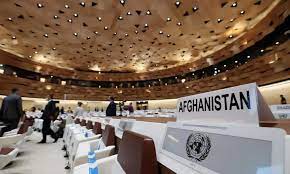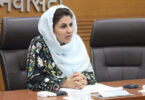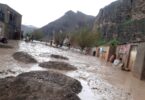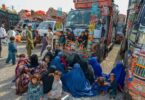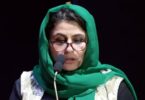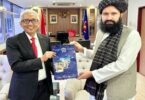KABUL (Khaama Press): The United Nations meeting for Afghanistan, scheduled for Sunday and Monday this week, is among the most important meetings for the country.
The agenda of this meeting includes issues regarding aid and continued international assistance for the people of Afghanistan, appointing a special representative from the United Nations for Afghanistan, and increasing engagement with the Taliban.
It’s said that China, Russia, and the Taliban oppose the appointment of a special representative. However, countries like the United States advocate for an UN-appointed special representative for Afghanistan.
It’s still unclear who the final special representative for Afghanistan will be, but if a final agreement on the representative isn’t reached, the possibility of appointing or extending a special coordinator exists, with Feridun Sinirlioglu currently being considered.
Meanwhile, civil society organizations, human rights activists, and women’s rights activists are opposing any engagement with the Taliban or recognition of their authority. This opposition stems from the Taliban’s history of suppressive policies and gender apartheid.
More than 60 Afghan civil society organizations and groups penned an open letter to the United Nations ahead of the Doha Conference in Qatar, expressing concerns about their exclusion from the event.
The letter coincides with the Doha conference on Afghanistan, scheduled for Sunday and Monday of this week. It emphasizes the lack of opportunity for Afghan voices to participate in discussions crucial to the nation’s future. The letter highlights key issues such as the non-recognition of the Taliban regime, gender apartheid, women’s education and employment, and the protection of human rights from Taliban abuses.
Deprose Muchena, Senior Director at Amnesty International, underlines the importance of the upcoming UN-convened meeting in Doha, Qatar, on February 18-19. He emphasizes the need to address the culture of impunity and human rights abuses perpetrated by the Taliban.
Muchena stresses the necessity for collective action to protect the rights of all Afghan citizens, especially women and girls. He highlights the urgency of addressing the culture of impunity that enables the Taliban’s violations of human rights.
The meeting in Doha tomorrow aims to discuss the next steps regarding Afghanistan’s independent assessment, as required by Resolution 2679.

